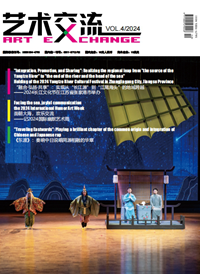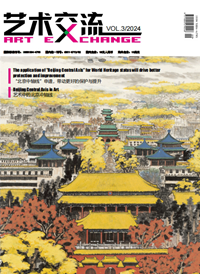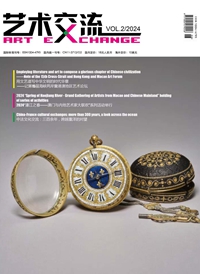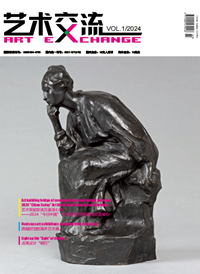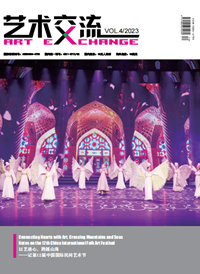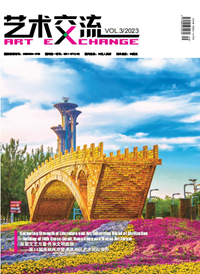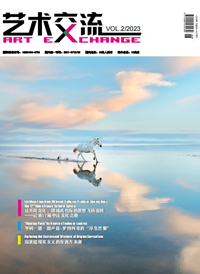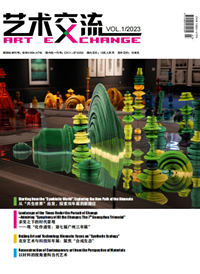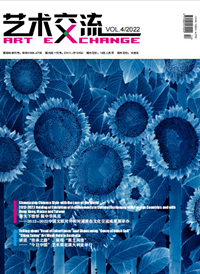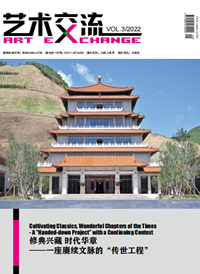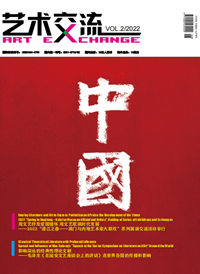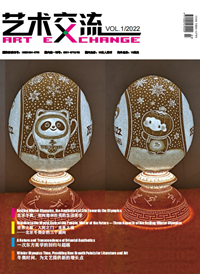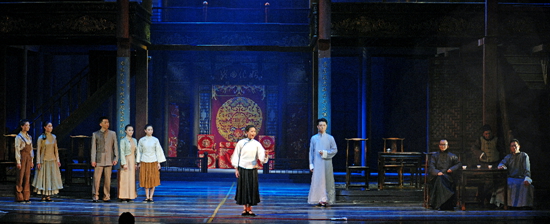
Photo of Last Song in Ancient Peking
Six hundreds years ago, Gu Jian improved the singing tone of Kunqu opera. Four hundreds years ago, Tang Xianzu completed the immortal legendary work The Peony Pavilion. When Kunqu opera was at its peak, Palace of Longevity and Peach Blossom Fan came into being successively. Nobody would foresee that Kunqu, which once had solidify its holding as the national opera is declining and stranded in the imminent danger. Eighty years ago, Suzhou Kunqu Opera School was founded, which aimed to preserve its continuance. Fifty years ago, Zhou Chuanying went to Beijing to put on the new version of Kunqu opera Fifteen Strings of Cash with the actors of his generation. This play revived Kunqu. However, this tradition was broken by the Cultural Revolution. Although it went through the recovery in 1980s, it suffered from the market impact of 1990s.
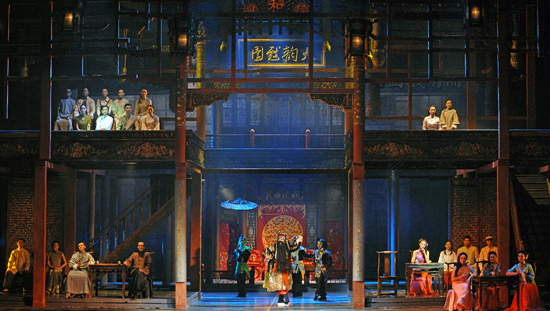
Photo of Last Song in Ancient Peking
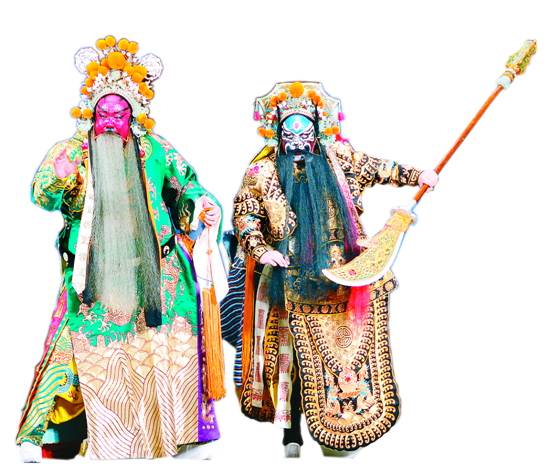
Photo of Hero Guanyu
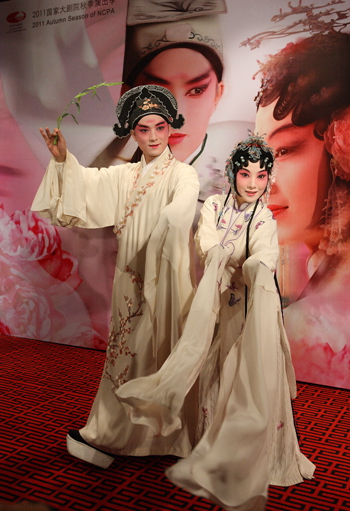
Characters of Peony Pavilion Photo by Wang Xiaojing
Kunqu opera that has become the Intangible Heritage goes through the changes over ten years and everything is just about to begin.
With the fast beat and quick rhythm, Kunqu opera gradually comes into our view. All the professional troupes vie with each other in bringing forth new programs and increasing the number of performances. While providing the cast for the youth version of The Peony Pavilion, Suzhou Kunqu Opera Theater also put on the complete show of Palace of Longevity, which was on the public show in Beijing in 2004. It also provides “Sunday Public Welfare Performance” as well. In 2006, Kunqu Opera Theatre of Jiangsu Province put on the show 1699: Peach Blossom Fan with Tian Xinlei as the director and Yu Guangzhong as the literary consultant, which had made a great stir at that time. According to Ge Jun’s words, the Head of Kunqu Opera Theatre of Jiangsu Province, the performances of the theatre soared from less than 100 performances per year to 600 performances per year over 10 years of being the Intangible Heritage. In April of this year, Dream of Red Mansion, which is originally produced by Northern Kunqu Opera Theatre will be performed at National Centre for Performing Arts. Talents from different fields join in hands to present such a magnificent show.
2011 is the last year of ten years of being classified as Intangible Heritage. In 2011, the activities to memorize this special event come in succession. On May 16, Kunshan of Jiangsu Province undertook a series of commemorative activities and seven professional Kunqu troupes all over the country and many opera societies from Taiwan took part in it, which showcased the achievements of the protection and development of Kunqu opera over 10 years. On May 18, the Ministry of Culture undertook the 2011 Performing Week for National Excellent Middle-Aged and Youth Actors and Actresses. In October, the commemorative activity for the 100th Anniversary of Zhou Chuanying, Great Master of Kunqu opera was held in Zhejiang. In December, the commemorative activity for the 100th Anniversary of Hou Yongkui, another Great Master was held in Beijing.
Another good phenomenon is that the Kunqu opera personnel has been reinforced by Shanghai Youth Beijing and Kunqu Opera Troupe, China Kunqu Opera Museum and other opera schools. What is more, Kunqu opera troupes all over the country has broken down the barriers of region and affiliation and jointly work with each other, which creates a good picture for the inheritance of Kunqu opera. Shanghai Kunqu Opera Troupe brought Palace of Longevity to perform in Beijing; Kunqu Opera Theatre of Jiangsu Province put forward “Kunqu Opera Performing along High-speed Railway” and headed troupes along the railway to perform in Jiangsu; Northern Kunqu Opera Theatre went to Shanghai and participated in the performances of Shanghai Expo. All of these have made a great stir and reaped positive responses. During the performance to commemorate the 100th Anniversary of Zhou Chuanying, Hou Shaokui, the famous actor of Northern Kunqu opera and Zhou Haolu, the granddaughter of Zhou Chuanying jointly performed the show Escorting Jingniang Thousands of Miles. Until the commemorative performance of the 100th Anniversary of Hou Yongkui, Pei Yanlin, Cai Zhengren and Ji Zhenhua, Kunqu opera performing artists came to support. Hou Shaokui and Zhou Haolu performed jointly again, which left behind a much-told tale. It is a great luck for Kunqu opera that there exists no difference between southern and northern Kunqu opera.
What deserves our attention is that Kunqu opera is not limited to the performances of certain roles. Some plays such as Lin Chong Fled at Night, To Attend the Banquet Alone are becoming more and more popular among audiences. The play such as Gongsun Zidu of Zhejiang Kunqu Opera Troupe provides a large room to manoeuver for martial actors like Lin Weilin. Its significance of protecting the whole Kunqu opera skills should not be neglected. When the “emotion” and the “beauty” of Kunqu opera are widely welcome, “to act the role” also attracts the professional attentions. At the seminar of Kunqu opera in commemoration of the 100th Anniversary of Hou Yongkui, experts pointed out that the opera should emphasize the formality and go into the inner heart of the character deeper as well. The song “Dianjiangchun”, “Xinshuiling” of Lin Chong Fled at Night and the sentence, “endless stream of heroic blood over 20 years” of To Attend the Banquet Alone held the audiences spellbound with tears washing eyes. It is absolutely not the outcome of the formality, but the characters that touch the audiences and bring forth the great emotional shocks.
The way out might be pursued consistently in practices. After 200 performances of the youth version of The Peony Pavilion, Bai Xianyong put forward the concept of “the new aesthetics of Kunqu opera”. What is that? That is the combination of classic beauty and modern sense. Some professionals also believe that the most basic singing tone, formality of Kunqu opera must be unchangeable, while the integration of sound, light and electricity technologies into the modern stage is allowed. Besides, to follow the origin of Kunqu opera by tracing back to the history is the consistent effort of those opera theorists. Ever since 2005, Suzhou has held Forum of Chinese Kunqu Opera for five times in succession and five books of Collected Papers of the Forum, six books of The Series of Biographies of Kunqu Opera Artists and ten books of Kunqu Opera and Traditional Cultural Studies have been edited and published. Researches by China Academy of Art and other opera schools are being carried out systematically. Beijing Kunqu Study Society and others have made meaningful contribution to the protection and inheritance of Kunqu opera.
Kunqu emphasizes that performers inherit the tradition, which must be fulfilled by performers. Over the ten years of becoming the Intangible Heritage, Kunqu opera is no longer lonely owing to various efforts from Bai Xianyong, who is ready to be the volunteer of Kunqu opera all over the world, Tan Dun, who puts on the musical, dramatic and scenic versions of The Peony Pavilion, Yu Dan, who delivers the lecture on Kunqu opera at CCTV and Bando Tamasaburo, Japanese Mei Langfang who spares no efforts for Kunqu opera.
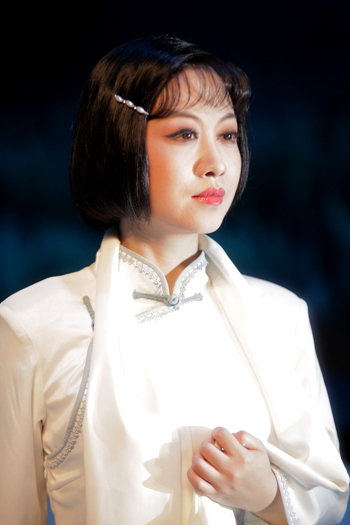
Photo of Taoran Romance
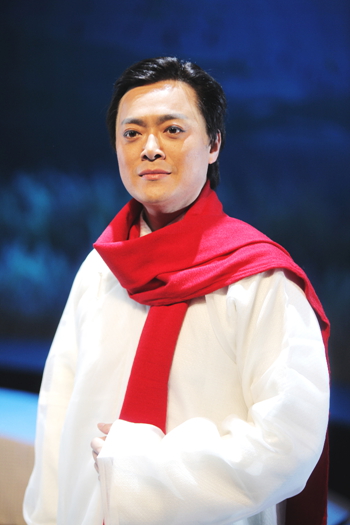
Photo of Taoran Romance
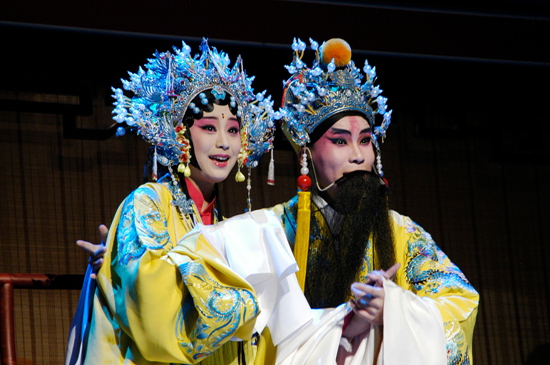
Photo of Nine Dynasties—Palace of Longevity



